A Germantown-based seed company is at the heart of a groundbreaking exhibit at the Academy of Natural Sciences of Drexel University, showcasing the cultural significance of heirloom plants and the stories behind them.
Truelove Seeds, founded by Germantown residents Chris Bolden-Newsome and Owen Taylor, has partnered with five local gardens and farms to create "Heirloom Plants: Ancestral Seeds in Philadelphia." The exhibit, running through Feb. 17, 2025, features plants grown by communities from the Philippines, Vietnam, Puerto Rico, Burma and the African diaspora.
"We focus on providing …
This item is available in full to subscribers.
You can also purchase this individual item for $1.50
We have recently launched a new and improved website. To continue reading, you will need to either log into your subscriber account, or purchase a new subscription.
If you are a digital subscriber with an active subscription, then you already have an account here. Just reset your password if you've not yet logged in to your account on this new site.
If you are a current print subscriber, you can set up a free website account by clicking here.
Otherwise, click here to view your options for subscribing.
Please log in to continue |
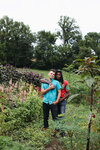

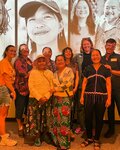
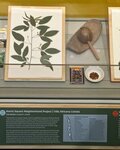
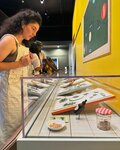
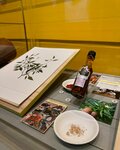
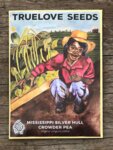
A Germantown-based seed company is at the heart of a groundbreaking exhibit at the Academy of Natural Sciences of Drexel University, showcasing the cultural significance of heirloom plants and the stories behind them.
Truelove Seeds, founded by Germantown residents Chris Bolden-Newsome and Owen Taylor, has partnered with five local gardens and farms to create "Heirloom Plants: Ancestral Seeds in Philadelphia." The exhibit, running through Feb. 17, 2025, features plants grown by communities from the Philippines, Vietnam, Puerto Rico, Burma and the African diaspora.
"We focus on providing culturally important and ancestral seeds grown both by and for people to whom they are essential flavors of home," Taylor said. "We work with farmers carrying on their food traditions through work with seeds and community."
The exhibit marks a shift in the Academy's approach to plant preservation.
"In the past, explorers or scientists traveled to someone else's region or country and brought back specimens. The records told little more than 'who, what and where,’” said Ryan Greenberg, the Academy's senior director of creative development and public partnerships. “In this exhibit, the plants are connected to the cultural practices of the growers' ancestors."
Five of the 25 Philadelphia-area specimens added to the Academy's 1.4 million-strong botany herbarium are on display. These new additions represent a departure from traditional collection methods, focusing on the cultural context and ongoing use of the plants.
"What's remarkable is the deep connections people have to these plants over generations," Greenberg added. "For immigrants and refugees, the seeds restore their ability to hold onto recipes and foods from their home country."
Taylor and Bolden-Newsome, partners in both business and life, founded Truelove Seeds in 2017. Married since 2012, they live in Germantown with their young son. One of the ways their business model differs from other heirloom seed companies is that it emphasizes profit-sharing and paying higher prices for seeds and work.
The couple's journey to seed preservation and cultural advocacy began with their individual experiences. Taylor traces his interest in growing to his childhood in Connecticut, where his mother encouraged his love of gardening. His passion solidified during a summer working at a Community Supported Agriculture farm in Virginia.
"I realized farming could be my life's work, a kind of community-level solution to the problems of the global food system, industrial agriculture and environmental racism," Taylor said.
Bolden-Newsome brings a deep connection to farming from his roots in the Mississippi Delta. "I'm the son of farmers," he said. "My dad came from generations of sharecroppers. I grew up with this being normal."
Their paths converged at an agricultural conference 16 years ago, leading to a partnership that combines Taylor's environmental justice background with Bolden-Newsome's cultural preservation efforts.
Bolden-Newsome's work at Sankofa Community Farm at Bartram's Garden in Southwest Philadelphia exemplifies their approach. The farm's name, meaning "go back and get it" in the Twi language of Ghana, reflects its mission to reconnect communities with their agricultural heritage.
"We have monthly meetings and classes on canning. We teach herbalism and basic medicine making. We teach about Dr. Carver and Mama Fannie Lou Hamer and other agricultural giants," Bolden-Newsome explained. "People who connected their activism with Black liberation and cultural traditions."
The exhibit at the Academy of Natural Sciences brings these efforts to a broader audience. Taylor selected five local growers to choose their most important plants and share their stories. This collaborative approach has resulted in a display that goes beyond mere specimens, offering visitors a glimpse into the living traditions behind each plant.
The Academy is hosting a "pay what you wish" Town Square event on Oct. 3 from 5 p.m. to 6:30 p.m., themed "Planting for the Future." Truelove Seeds founders Chris Bolden-Newsome and Owen Taylor will join an interactive panel moderated by Maiken Scott, host of WHYY’s “The Pulse,” where African Diaspora food traditions and the role of seed keeping in cultural preservation, food sovereignty and sustainable agriculture are discussed.
Truelove Seeds' impact extends well beyond the exhibit. With 70 farmers in their grower's network and an online catalog featuring 423 seed varieties, the company offers internships and workshops, and produces a radio show called "Seeds and Their People."
For Truelove, the preservation of heirloom seeds is about more than just maintaining plant diversity. It's about keeping cultural traditions alive, supporting food sovereignty and connecting communities to their heritage.
"The common theme among our growers is a commitment to preserve and share their cultural plants. That's what ties everybody together," Taylor said.
For more information on exhibit:
For more information: